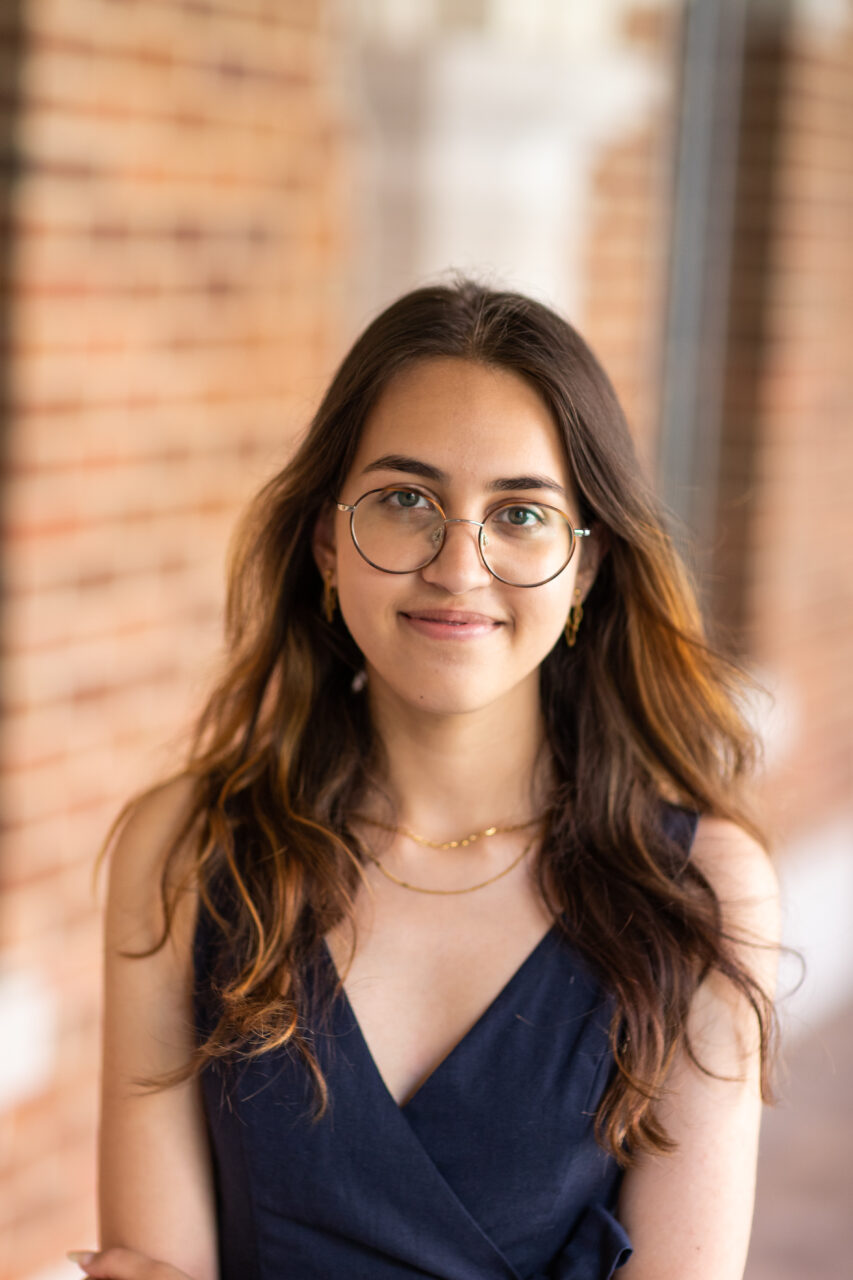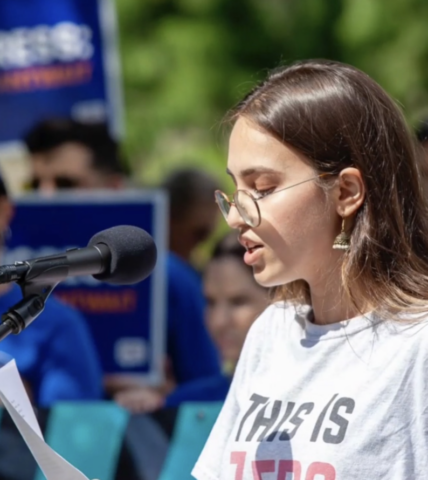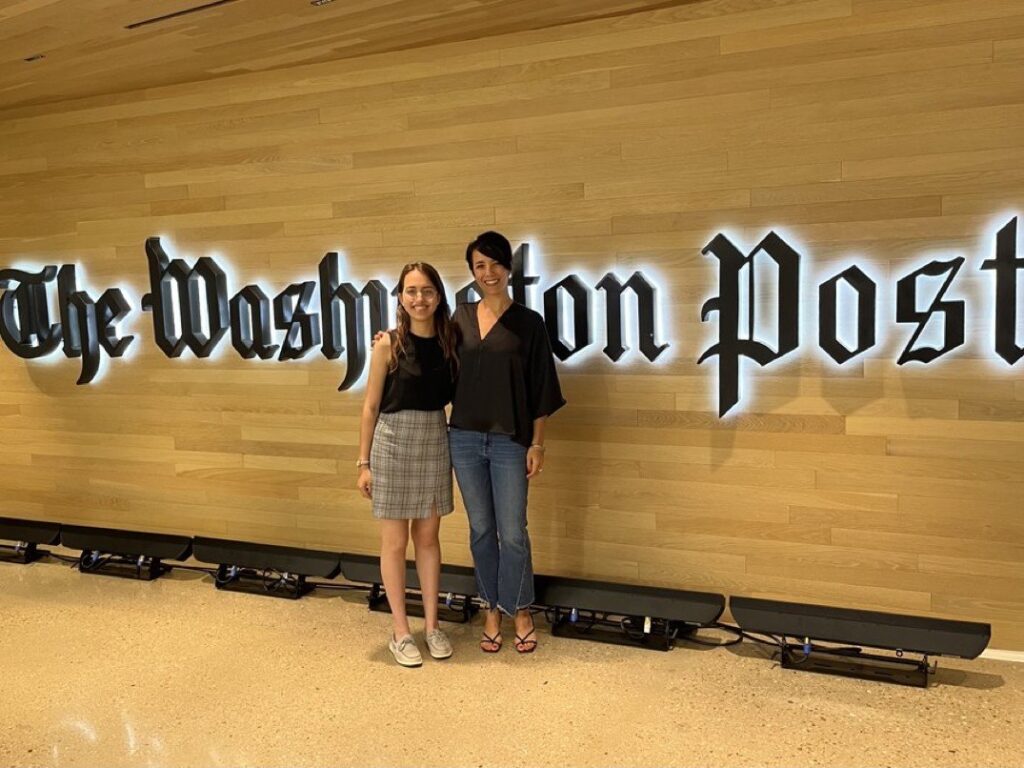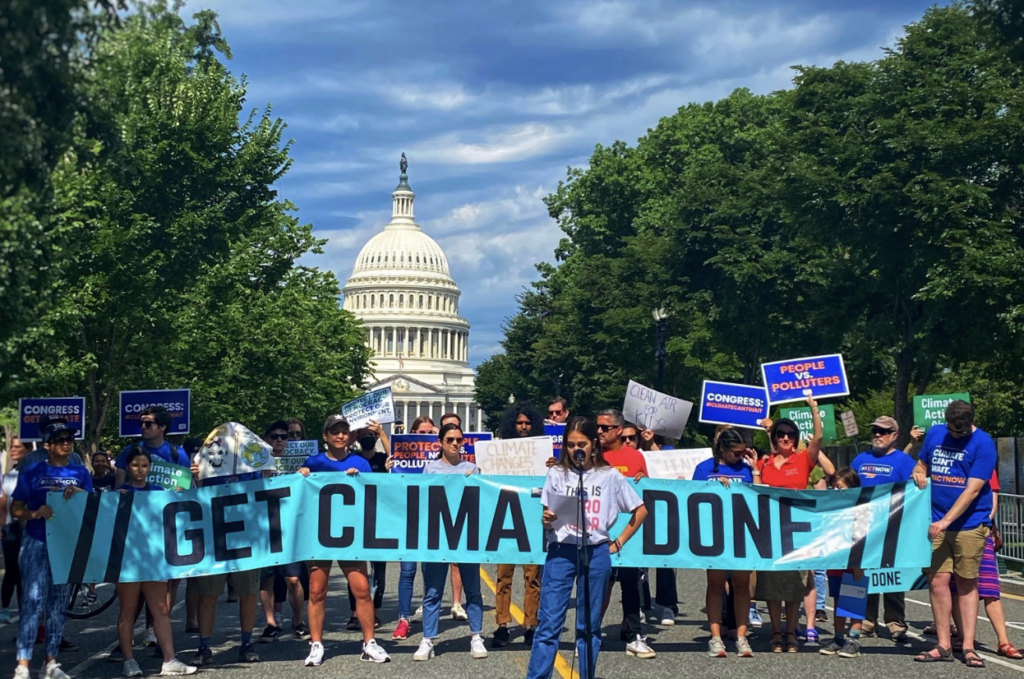ACE INTERVIEW: A Deep Dive with Aaditi Lele and her Climate Justice Activism
Victoria Whalen, ACE Fellow
|January 9, 2023

Aaditi Lele (she/her) is an inspiring young climate justice activist making strides with her advocacy at Vanderbilt University. Aaditi is currently the Research & Policy Communications Lead at Zero Hour, a News Editor with the Vanderbilt Hustler, and a Fossil Free 5 campaign member. Her work has been featured by The Washington Post, CNN, and more.
Victoria Whalen (VW): Was there a particular moment in time when you realized we were in a climate crisis? How did that make you feel at the time?
Aaditi Lele (AL): I don’t think there was a particular singular moment when I realized that we were in a climate crisis, but, like a lot of young people right now, it’s been a reality all my life. I grew up in India before moving to Ohio in elementary school, so a large part of my approach to the climate crisis has been shaped by my experience as an immigrant and South Asian-American. I think rather than there being an “aha” moment where I realized we were in the climate crisis, I came to more of a reckoning early in high school when I realized how little was being done about this crisis by our “leaders.” For me, and a lot of other young people, I think this realization injects us not just with fear, but also with a lot of frustration. Movements like Zero Hour and others formed out of this frustration that “leaders” were not recognizing the urgency of the crisis which was so clear to young people.
VW: What does climate justice mean to you? What injustices have you seen or been impacted by living in the South?
AL: To me, climate justice means centering the intersectionality of the climate movement. There have been points in conservation advocacy where movements have centered messaging that called for wildlife protection and land conservation. And while these are undoubtedly important, these goals left out the ways in which marginalized communities, particularly Indigenous and POC communities, were systematically targeted by the climate crisis. So, climate justice recognizes that the climate crisis is rooted in systemic racism, ableism, and other forms of discrimination. These injustices have been particularly apparent in the South. For instance, Black neighborhoods in “Cancer Alley” in Louisiana have been receiving the brunt of pollutants from petrochemical production for decades. Grassroots organizers like Rise St. James have been doing amazing work to bring these injustices to light in recent years.
VW: Being a young activist in the South can be challenging. What motivates you to continue your activism efforts?
AL: I think, despite the challenges, part of what keeps me going and involved in activism is the community and people that it comes with. I have met some of my best friends through activism and there is a lot of energy, compassion, and community that is built when working together with so many amazing people all over the world. Being able to see your work pay off is really rewarding as well. Just in the past few years, various campus-based campaigns have prevented so much new fossil fuel infrastructure from being built and divested millions of dollars from the industry. It’s really inspiring to see this progress and it is definitely part of what keeps me in the fight.

VW: You are part of an inaugural cohort of Vanderbilt undergraduates taking part in the Climate, Health, and Energy Equity Lab (CHEEL). What made you interested in participating, and what has been the most exciting part?
AL: Oftentimes, colleges and other institutions tend to become isolated from the larger communities that they exist in. I believe that it’s really critical for students, faculty, and members of an institution to actively engage with their wider surroundings and build an active community with those who might be more marginalized by different systems of oppression. The new Climate Health and Energy Equity Lab at Vanderbilt is doing a lot of critical work to bridge that divide between the university and the larger Vanderbilt community, while also reducing carbon emissions to mitigate climate change and its worst effects. I’m really excited to be part of a project with those aims and ideals.
VW: Vanderbilt University is one of the participating schools under the Fossil Free 5 divestment campaign. How did you become involved with the coalition, and what been the most impactful moment?
AL: The Fossil Free 5 Campaign was started in early 2022 to bind together efforts at 5 universities across the country as we pushed for institutional divestment from fossil fuels. In the Fall of 2021, our fossil fuel divestment campaign at Vanderbilt, along with campaigns based at MIT, Stanford, Yale, and Princeton, each decided to craft legal complaints under a non-profit management law, which essentially argued that our universities were failing to prudently manage their funds since they refused to divest from fossil fuels. We were able to do this only through the support of the team at the Climate Defense Project and collaborators at Harvard’s successful fossil fuel divestment campaign. Once we had all written our complaints, we began trying to create a media strategy— because the efficacy of the legal strategy depended on how effectively we got the word out. By coming together as five campaigns under one name, we were able to gain more media attention, including coverage in the Washington Post, CNN, the Guardian, and more. One of the most impactful moments of this project was the day each of our campaigns simultaneously released our legal complaints. It was really exciting to see all of the media coverage be released and have fossil fuel divestment become part of public discourse. And even more than that, each of our campaigns held brief demonstrations on our campuses across the country. It was really inspiring to see that there could be such a feeling of unity and community, all at the same time, across the South, the West Coast, and the Northeast.
I don’t think there was a particular singular moment when I realized that we were in a climate crisis, but, like a lot of young people right now, it’s been a reality all my life.
VW: Can you talk more about the Vanderbilt Hustler and how written media has impacted your climate activism on and off campus?
AL: Regardless of whether your activism is based on your campus or outside it, it is absolutely critical to leverage writing and media to elevate your campaign. I’ve always loved written media and journalism, and currently serve as my school newspaper’s News Editor, so writing is my go-to for any campaign. Leveraging media can help you get your message out to a wider audience, and also allows you to gain more control over the “story” of your campaign as well. For every campaign you try to execute, I would recommend crafting and pitching op-eds to local, statewide, and national outlets, as well as using press releases to gain news coverage as well.

VW: How can young people hold their elected officials accountable?
AL: There are plenty of ways that young people can hold their elected officials accountable. First, I think it’s critical that we break the stigma that “lobbying” is just something that super experienced professionals are able to do. Young people can absolutely be effective lobbyists, just start by reaching out to your elected officials’ offices and set up meetings to discuss your concerns. Movements like Zero Hour have been helping young people learn how to be effective lobbyists for years, so joining our team is a great starting point if you are looking for support. Young people can also leverage platforms on social media, written media, and local news to hold their elected officials accountable. Write blog posts, letters to the editor, and op-eds! You’re never too young to have your voice heard.

VW: How can people support your work? Are there other organizations or resources you think people should know about?
AL: In terms of supporting my work, people should absolutely follow @thisiszerohour on all platforms! We are always excited to have more young people joining our movement, and we dedicate our platform to providing entry points and resources to help you learn how to lead, organize, and lobby for climate justice. Reach out to me on social media to learn how you can create a chapter in your hometown, campus, or state! You can also support my fossil fuel divestment work by following @fossilfree5 and starting a fossil fuel divestment campaign at your own school, college campus, or other institution! Don’t hesitate to reach out to me with any questions— I’m always happy to collaborate and share any knowledge to help you join us in the fight for climate justice!
Photos courtesy of Aaditi Lele.
Answers may have been edited for length.
Want to read more? Check out the ACE Blog!
Join our Youth Action Network
More Blog Posts

Unnatural, Not Unprecedented
For two weeks, residents of Southern California endured a waking nightmare. Parents raced against time – hurrying down the driveway …
Read MoreCrafting a Vision for the Future: My Experience at LCOY USA 2024
Dry and sunny Tempe, Arizona where temperatures have been over 100 F for 113 consecutive days, delegates gathered to attend …
Read More
7 Ways to Weatherproof Your Home on the Cheap (+1 Not-So-Cheap)
As colder weather sets in, understanding how to weatherproof your home is key to maintaining warmth and reducing energy costs. …
Read More